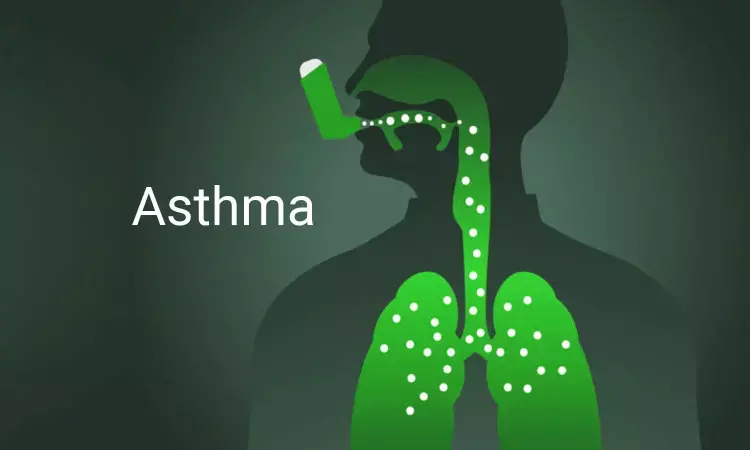- Home
- Medical news & Guidelines
- Anesthesiology
- Cardiology and CTVS
- Critical Care
- Dentistry
- Dermatology
- Diabetes and Endocrinology
- ENT
- Gastroenterology
- Medicine
- Nephrology
- Neurology
- Obstretics-Gynaecology
- Oncology
- Ophthalmology
- Orthopaedics
- Pediatrics-Neonatology
- Psychiatry
- Pulmonology
- Radiology
- Surgery
- Urology
- Laboratory Medicine
- Diet
- Nursing
- Paramedical
- Physiotherapy
- Health news
- Fact Check
- Bone Health Fact Check
- Brain Health Fact Check
- Cancer Related Fact Check
- Child Care Fact Check
- Dental and oral health fact check
- Diabetes and metabolic health fact check
- Diet and Nutrition Fact Check
- Eye and ENT Care Fact Check
- Fitness fact check
- Gut health fact check
- Heart health fact check
- Kidney health fact check
- Medical education fact check
- Men's health fact check
- Respiratory fact check
- Skin and hair care fact check
- Vaccine and Immunization fact check
- Women's health fact check
- AYUSH
- State News
- Andaman and Nicobar Islands
- Andhra Pradesh
- Arunachal Pradesh
- Assam
- Bihar
- Chandigarh
- Chattisgarh
- Dadra and Nagar Haveli
- Daman and Diu
- Delhi
- Goa
- Gujarat
- Haryana
- Himachal Pradesh
- Jammu & Kashmir
- Jharkhand
- Karnataka
- Kerala
- Ladakh
- Lakshadweep
- Madhya Pradesh
- Maharashtra
- Manipur
- Meghalaya
- Mizoram
- Nagaland
- Odisha
- Puducherry
- Punjab
- Rajasthan
- Sikkim
- Tamil Nadu
- Telangana
- Tripura
- Uttar Pradesh
- Uttrakhand
- West Bengal
- Medical Education
- Industry
Tezepelumab safe drug for moderate to severe forms of asthma: NEJM

According to recent research, it has been found out that an experimental injectable drug, Tezepelumab is more versatile when compared with the existing medications for treating moderate to severe forms of asthma, as published in the New England Journal of Medicine.
Asthma is a common lung problem. Between 5% and 10% of people with asthma suffer from severe symptoms and frequent asthma attacks even though they are on the maximum available treatment. While, Tezepelumab blocks a protein called thymic stromal lymphopoietin (TSLP) that promotes multiple inflammatory processes that have all been linked to asthma attacks, there have been no literature studies to review its effect to control severe or hard forms of the disease.
Dr. Andrew Menzies-Gow and colleagues from the Royal Brompton Hospital in London, England explained that this invention, tezepelumab, is yet another monoclonal antibody, but it targets an inflammatory protein thought to play an early role in many different types of asthma.
A number of monoclonal antibody medications called biologics have been crafted to target distinct asthma triggers as there are many different types of asthma brought on by many different triggers, therefore, the authors conducted the present phase 3 clinical trial to assess the effectiveness of tezepelumab in quelling severe asthma among patients who had widely varying causes of their shortness of breath.
Tezepelumab was tested in more than 1,000 people, with about half randomly assigned to receive an inactive placebo and the other half receiving monthly 210 mg injections of the drug. The trial participants were chosen to reflect the different causes of severe asthma.
The following results were seen-
- After a year's treatment, patients on tezepelumab experienced fewer asthma attacks and better lung function, asthma control, and health-related quality of life than those on placebo.
- People with a low eosinophil count had a 41% reduced rate of asthma attacks, while those with a high count had a 70% reduction.
- People affected by seasonal allergies had a 58% reduction in asthma attacks, while asthmatics not sensitive to allergens had a 51% reduction.
Therefore, the authors concluded that "Tezepelumab has proved to be a safe drug with no significant side effects."
Dr. Nandita Mohan is a practicing pediatric dentist with more than 5 years of clinical work experience. Along with this, she is equally interested in keeping herself up to date about the latest developments in the field of medicine and dentistry which is the driving force for her to be in association with Medical Dialogues. She also has her name attached with many publications; both national and international. She has pursued her BDS from Rajiv Gandhi University of Health Sciences, Bangalore and later went to enter her dream specialty (MDS) in the Department of Pedodontics and Preventive Dentistry from Pt. B.D. Sharma University of Health Sciences. Through all the years of experience, her core interest in learning something new has never stopped. She can be contacted at editorial@medicaldialogues.in. Contact no. 011-43720751
Dr Kamal Kant Kohli-MBBS, DTCD- a chest specialist with more than 30 years of practice and a flair for writing clinical articles, Dr Kamal Kant Kohli joined Medical Dialogues as a Chief Editor of Medical News. Besides writing articles, as an editor, he proofreads and verifies all the medical content published on Medical Dialogues including those coming from journals, studies,medical conferences,guidelines etc. Email: drkohli@medicaldialogues.in. Contact no. 011-43720751


